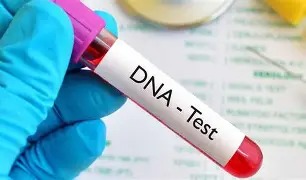A new report by Smart DNA Nigeria, the country’s leading DNA testing centre, has revealed that one in every four Nigerian men who undergo paternity testing is not the biological father of the child in question—a statistic that continues to send shockwaves through Nigeria’s evolving family landscape.
The 2025 Annual DNA Testing Report, which covers the period from July 2024 to June 2025, highlights the profound intersections of trust, family, migration, and modern science in Nigerian society.
Although the rate of paternity exclusion dropped slightly from 27% in 2024 to 25% in 2025, the figure remains alarmingly high, sustaining what experts describe as a quiet but growing social crisis.
“These findings are not just about science; they speak volumes about trust, relationships, and the economic and emotional realities of Nigerian families today,” said Elizabeth Digia, Operations Manager at Smart DNA Nigeria.
READ ALSO: Many MKO Abiola’s Children Failed DNA Tests — Son Reveals
Perhaps the most striking revelation in the report is the disproportionate rate of paternity rejection among firstborn sons. According to the data, 64% of firstborn males tested were found not to be biologically related to their presumed fathers, making them the group most likely to return negative results.
This staggering figure far outweighs the rates seen in later-born children, raising complex psychological, social, and cultural questions. Firstborn daughters also recorded higher-than-average rejection rates, though not as dramatically as sons.
Analysts suggest this trend may point to unspoken cultural factors such as early relationships, pre-marital pregnancies, or strategic partner selection.
READ ALSO: Many Nigerians Are Not Biological Father Of Their Children- Report
It also underscores the fragile dynamics of how fatherhood is claimed and accepted in Nigerian society—particularly in a context where patriarchal traditions place heavy emphasis on male lineage, inheritance, and family name continuity.
The report has sparked renewed debate over family trust, marital stability, and the growing role of DNA science in reshaping social realities in Nigeria.
